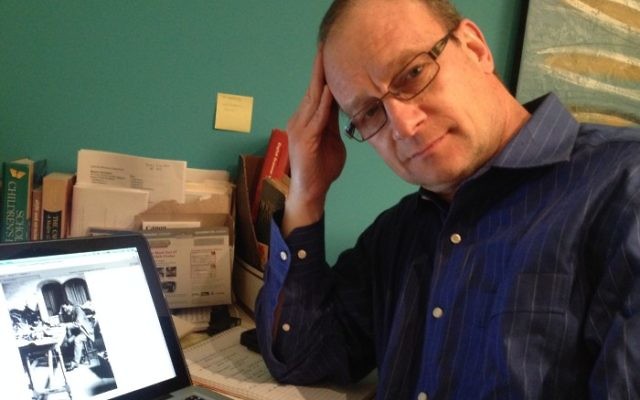‘Til Blue Skies Drive the Dark Clouds Away
Until we meet again some sunny day, there are lessons to be learned about not taking health – or the sounds of birds – for granted.
Dave Schechter is a veteran journalist whose career includes writing and producing reports from Israel and elsewhere in the Middle East.
Before the storms rolled through a couple of Sunday nights ago, I went outside to survey my kingdom.
To protect my health I am barred from leaving the premises, other than the occasional walk around the block, so my kingdom extends from where our driveway meets the street to the backyard fence.
On this night, a couple of hours before sunset, I watched the sky darken early as the clouds moved briskly and the trees swayed in a stiff wind out of the southwest. And I listened to the birds.
When you live in an urban or suburban environment, the light from houses and streetlights can obscure the stars in the night sky. Likewise, the din from the interstate about a mile away usually competes with nature’s soundtrack. Until recently, that is, when the volume of traffic receded, making it easier to hear the chorus, including the owl at night. I had not thought much about this until the afternoon I used my phone to take my mother and sister, who live in downtown Chicago, on a tour of our back yard: the kiwi plant draped over a basketball hoop, an azalea in bloom, bees buzzing about the blueberry bushes, the blackberry and raspberry vines appearing healthy, and the tomato, basil, eggplant, and corn growing steadily upward in the garden box.
My mother, who currently is restricted to her apartment on the 43rd floor of a senior residence, asked that I stop talking so that they could better hear the birds chirping in the background. So I propped up the phone on a table and left her with a view of the yard and the natural sound of its inhabitants.
Therein lies one of the likely lessons of our current situation, discovering the value in things we otherwise might take for granted.
One thing that no one will take for granted moving forward is health, personal as well as that of family and friends. Any such inclination I might have had ended about a year ago with a cancer diagnosis. I freely express gratitude for the skills of my surgeon and the dedication and good humor of the nurses who administer my treatments.
By chance, my wife discovered an unopened N95 mask in our carport shed. I donated it to my regular nurse. When she called to say thank you, I replied that it was in my best interest that she be healthy.
In the aftermath of 9/11, Americans heralded the “first responders,” the police officers, firefighters and emergency medical technicians who rushed toward the collapsed World Trade Center towers in New York City.
Today, the talk is of “front line workers,” particularly the nurses, doctors and the less-heralded hospital employees, from the laboratory techs to the maintenance crews, who quite literally work in harm’s way.
The cheers for these men and women, in their nondescript scrubs with plastic name tags, that have echoed nightly in midtown Atlanta, are at least (if not more) deserved than those usually reserved for “heroes” who kick, hit, throw, carry and shoot a ball.
Since the second week of March, most of my working hours have been spent in my office writing articles about the impact of COVID-19 on the Jewish community.
Meanwhile, my two canine co-workers, happy to leave the daily tumult to the humans, behave as if my primary role is to open and close the sliding glass door to the back yard and to serve their dinner on time.
That “dark, ominous, threatening storm cloud,” as I called COVID-19 in my last column, has yet to pass, and remains a threat, irrespective of those who behave as if they can talk this peril into the past tense.
When Queen Elizabeth II addressed the subjects of her realm about COVID-19, no one missed the significance of her saying “We will meet again,” invoking the 1939 song “We’ll Meet Again,” made popular by the singer Vera Lynn, which served as an anthem of hope as Britain endured its darkest hours of World War II.
The relevance of the lyrics in our current situation is inescapable:
We’ll meet again
Don’t know where, don’t know when
But I know we’ll meet again some
sunny day
Keep smiling through
Just like you always do
‘Til the blue skies drive the dark
clouds far away.




comments